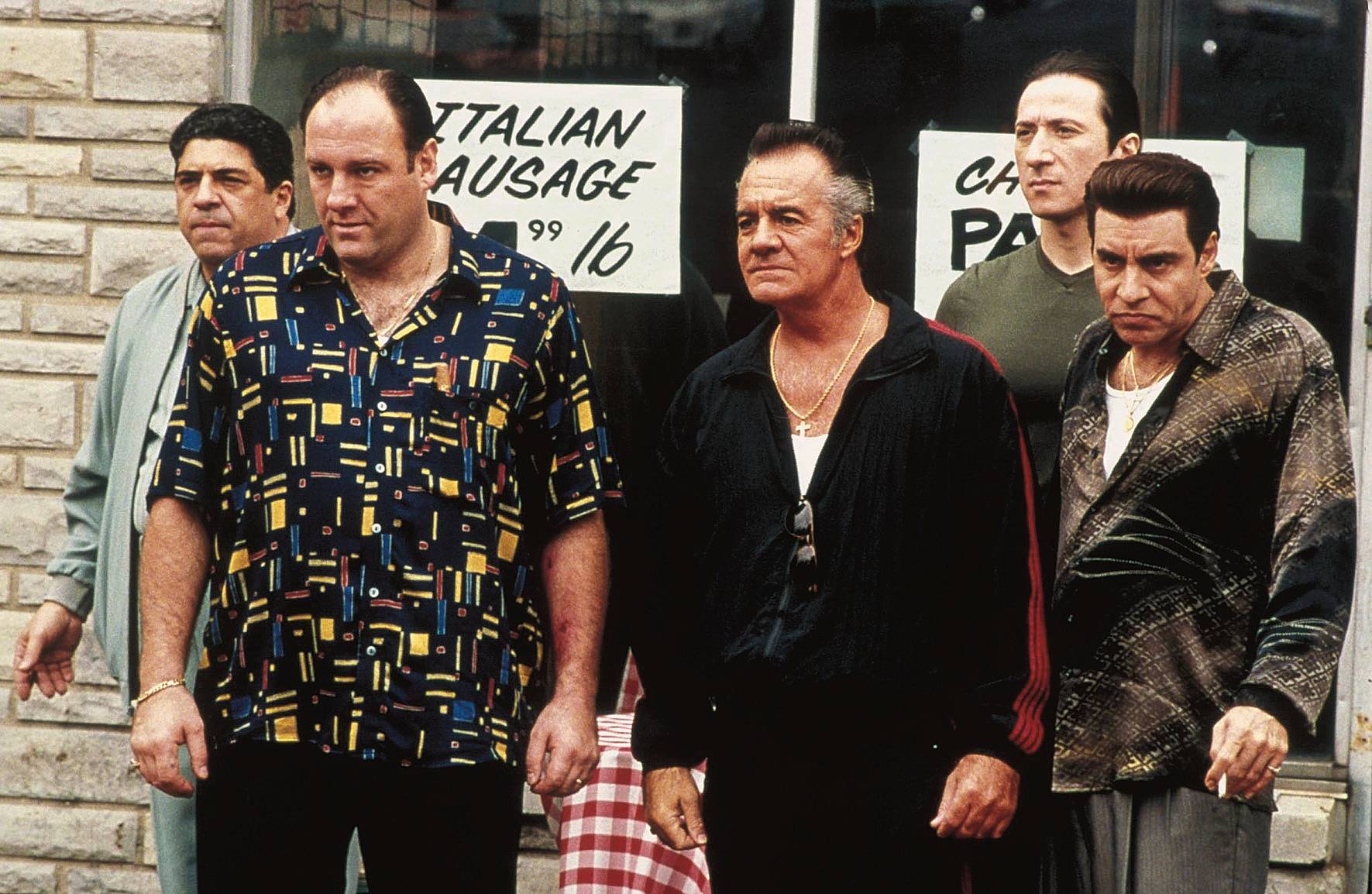Revealing The Secrets Of "The Sopranos": An Unforgettable Mafia Drama
What are sopranos?
Sopranos are the highest female singing voice, typically ranging from middle C to two octaves above. They are known for their clear, bright, and agile sound.
Sopranos are essential to choral music, and they often sing the lead roles in operas and musicals. Some of the most famous sopranos include Maria Callas, Renata Tebaldi, and Beverly Sills.
- June 20 Astrological Sign
- Benjamin Keough Music
- Palace Station Movies Theater
- Richardsons Ice Cream Flavors
- The Diamond Of The Sea
Sopranos play a vital role in the music world, and their unique voices bring joy to audiences around the globe.
Here are some of the main topics that will be covered in this article:
- The different types of sopranos
- The vocal techniques used by sopranos
- The history of sopranos in music
- The role of sopranos in opera and musical theater
Sopranos
Sopranos are the highest female singing voice, typically ranging from middle C to two octaves above. They are known for their clear, bright, and agile sound.
- Starting Lineup Boston Celtics
- East Village San Diego Bars
- Jane Leeves Movies And Tv Shows
- Fun Facts Dingo
- Who Is David Muir S New Partner
- Vocal range: Sopranos have the highest vocal range of all female singers.
- Timbre: The soprano voice is typically bright and clear, with a light, agile quality.
- Technique: Sopranos use a variety of vocal techniques to produce their sound, including breath control, resonance, and articulation.
- Repertoire: Sopranos sing a wide range of music, from classical to pop to jazz.
- Famous sopranos: Some of the most famous sopranos include Maria Callas, Renata Tebaldi, and Beverly Sills.
Sopranos play a vital role in the music world. Their unique voices bring joy to audiences around the globe.
Vocal range
The vocal range of a soprano is typically from middle C to two octaves above, making it the highest of all female singing voices. This wide range allows sopranos to sing both high and low notes with ease, making them ideal for a variety of musical genres.
- Classical music: Sopranos are often featured in opera and choral music, where their high voices can soar above the other voices in the ensemble.
- Popular music: Sopranos are also common in popular music, where their voices can add a touch of sweetness and femininity to a song.
- Jazz and blues: Sopranos can also be found in jazz and blues music, where their voices can improvisational and expressive.
The vocal range of a soprano is a gift that allows them to sing a wide variety of music. Whether they are singing classical, popular, or jazz, sopranos always bring their unique sound to the music.
Timbre
The timbre of a soprano voice is what gives it its unique sound. It is typically bright and clear, with a light, agile quality. This is due to the fact that sopranos have relatively small vocal cords, which vibrate quickly to produce high-pitched sounds. The shape of the soprano's vocal tract also contributes to the bright, clear sound, as it helps to resonate the high frequencies.
- Resonance: The shape of the soprano's vocal tract helps to resonate the high frequencies, giving the soprano voice its bright, clear sound.
- Agility: The light, agile quality of the soprano voice allows sopranos to sing fast, intricate passages with ease.
- Expression: The soprano voice is capable of great expressiveness, from the delicate pianissimo to the soaring forte.
- Versatility: The soprano voice is versatile and can be used in a wide range of musical genres, from classical to pop to jazz.
The unique timbre of the soprano voice makes it a valuable asset in the music world. Sopranos are often featured in opera, choral music, and popular music. Their voices can add a touch of beauty and excitement to any musical performance.
Technique
Sopranos use a variety of vocal techniques to produce their sound, including breath control, resonance, and articulation. These techniques are essential for sopranos to sing with power, clarity, and beauty.
- Breath control: Breath control is essential for all singers, but it is especially important for sopranos. Sopranos need to be able to control their breath in order to sing long, sustained notes and to sing at high pitches.
- Resonance: Resonance is the amplification of sound by sympathetic vibration. Sopranos use resonance to create a fuller, richer sound.
- Articulation: Articulation is the clear and precise pronunciation of words. Sopranos need to articulate clearly in order to be understood by their audience.
These vocal techniques are essential for sopranos to sing with power, clarity, and beauty. Sopranos who master these techniques can achieve great success in their singing careers.
Repertoire
Sopranos are known for their versatility and ability to sing a wide range of music, from classical to pop to jazz. This is due in part to their vocal range, which is the highest of all female singing voices. Sopranos can sing both high and low notes with ease, making them ideal for a variety of musical genres.
In classical music, sopranos are often featured in opera and choral music. Some of the most famous opera roles for sopranos include Violetta in Verdi's La Traviata, Mimi in Puccini's La Bohme, and Pamina in Mozart's The Magic Flute. Sopranos also play an important role in choral music, where their high voices can soar above the other voices in the ensemble.
In popular music, sopranos are often featured in pop, rock, and jazz music. Some of the most famous pop singers who are sopranos include Mariah Carey, Whitney Houston, and Celine Dion. Sopranos are also common in jazz music, where their voices can add a touch of sweetness and femininity to a song.
The ability of sopranos to sing a wide range of music is a valuable asset in the music world. Sopranos are in high demand for both classical and popular music, and their unique voices bring joy to audiences around the globe.
Famous sopranos
The connection between famous sopranos and the overall concept of "sopranos" is significant in several ways.
Firstly, famous sopranos serve as role models and inspirations for aspiring singers. Their exceptional vocal abilities, stage presence, and dedication to their craft motivate and encourage younger singers to pursue their own musical journeys. The achievements and recognition of these renowned sopranos demonstrate the potential and possibilities within the field of vocal performance.
Moreover, famous sopranos have played a pivotal role in shaping the public perception and appreciation of opera and classical music. Their performances have captivated audiences worldwide, showcasing the beauty, power, and emotional depth of the soprano voice. Through their artistry, they have contributed to the preservation and promotion of classical music traditions, ensuring its continued relevance and popularity.
In addition, the study of famous sopranos provides valuable insights into the vocal techniques, performance practices, and historical context of opera and classical music. Analyzing their recordings, live performances, and writings can help singers, scholars, and music enthusiasts gain a deeper understanding of the art form and its evolution over time.
In conclusion, famous sopranos are not merely exceptional singers but also influential figures who have significantly contributed to the world of music. Their talent, dedication, and impact have shaped the perception and appreciation of the soprano voice, inspired countless aspiring singers, and enriched the cultural landscape.
FAQs about Sopranos
This section addresses some frequently asked questions about sopranos, providing informative answers to common concerns or misconceptions.
Question 1: What is the vocal range of a soprano?
Sopranos have the highest vocal range of all female singers, typically spanning from middle C to two octaves above.
Question 2: What are the different types of sopranos?
Sopranos are classified into several subcategories based on their vocal weight, agility, and tessitura. Common types include coloratura soprano, lyric soprano, dramatic soprano, and soubrette soprano.
Question 3: What is the difference between a soprano and a mezzo-soprano?
Sopranos have a higher vocal range than mezzo-sopranos, with a lighter, more agile quality. Mezzo-sopranos, on the other hand, have a lower, richer voice with a wider range of vocal colors.
Question 4: What are some famous opera roles for sopranos?
Sopranos are often featured in lead roles in operas, such as Violetta in Verdi's La Traviata, Mimi in Puccini's La Bohme, and Pamina in Mozart's The Magic Flute.
Question 5: What are the challenges faced by sopranos?
Sopranos must maintain a high level of vocal technique to sing with power, clarity, and agility. They also face the challenge of staying in shape and avoiding vocal strain.
Question 6: What is the future of the soprano voice?
The soprano voice continues to be highly valued in the music world, with sopranos in high demand for both classical and popular music. As long as there is a love for beautiful singing, the soprano voice will continue to thrive.
In conclusion, sopranos are remarkable singers with unique vocal abilities that have captivated audiences for centuries. Their contributions to music are immeasurable, and their voices continue to inspire and enchant listeners around the world.
Transition to the next article section:
To further explore the world of sopranos, let's delve into their vocal techniques and the different types of soprano voices.
Conclusion
Sopranos, with their soaring vocal range and captivating timbre, hold a prominent place in the music world. Their voices have graced opera stages, concert halls, and popular music charts for centuries, leaving an indelible mark on the hearts of listeners.
Throughout this article, we have explored the many facets of sopranos, from their vocal techniques to their repertoire and historical significance. We have seen how sopranos have played a vital role in shaping the sound of classical music and how they continue to inspire and captivate audiences today.
As we look to the future, the soprano voice remains a symbol of beauty, power, and artistry. With their unique vocal abilities and dedication to their craft, sopranos will undoubtedly continue to enchant and move audiences for generations to come.
Article Recommendations
- Is Tyler Childers Still Married
- Ulricht
- June 20 Astrological Sign
- Nail Designs For Almond Shape Nails
- Who Is David Muir S New Partner



Detail Author:
- Name : Maurine Mraz
- Username : boconnell
- Email : smith.grace@ledner.com
- Birthdate : 2007-04-30
- Address : 73773 Moen Groves Kailynland, KY 36910-8045
- Phone : 743-473-6794
- Company : Halvorson-Abshire
- Job : Environmental Scientist
- Bio : Debitis voluptatibus maxime voluptatem qui nulla. Doloremque rerum voluptas illum earum. Eveniet velit et ad et molestias commodi. Earum et aliquam ipsum quod sequi.
Socials
facebook:
- url : https://facebook.com/elissa79
- username : elissa79
- bio : Nemo voluptatibus est nesciunt consequatur. Voluptas autem qui velit id.
- followers : 6467
- following : 1337
tiktok:
- url : https://tiktok.com/@elissa5621
- username : elissa5621
- bio : Voluptatum tempora officiis odio. Aliquid ipsam vel dolor maxime.
- followers : 1234
- following : 1445
linkedin:
- url : https://linkedin.com/in/ratke2016
- username : ratke2016
- bio : Quia laboriosam a dolor autem est.
- followers : 6801
- following : 1312